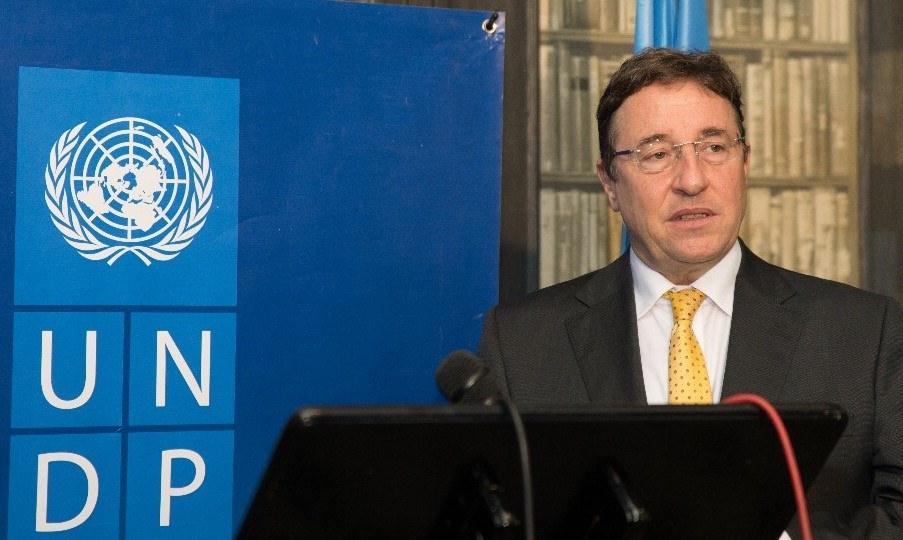Nigerians must take the lead in ending insurgency in North East-Steiner, UNDP Administrator
Even though the international community has been providing humanitarian, technical and other forms of assistance to Nigeria to tackle the ongoing insurgency in its North East of Nigeria, only Nigerians themselves can bring the crisis to an end.
Achim Steiner, UNDP Administrator, canvassed this position on Friday, October 5 in Abuja, Nigeria’s capital on the occasion of the launch of the 2018 UNDP Human Development Report for Nigeria.
Steiner who joined Mark Lowcock, UN Humanitarian Relief Coordinator, Senator Udo Udoma, Nigeria’s minister of Budget and Planning, Zainab Ahmed, Nigeria’s Minister of Finance, and Edward Kallon, UNDP’s Resident Representative for Nigeria to launch the report, titled, “Achieving Human Development in NorthEast Nigeria:Towards An Understanding of the Humanitarian-Development-Peace Nexus”, said the crisis in North East Nigeria reflected a reaction to the failure of development.
He said the UNDP is challenging the model of development that leaves many people behind. He said the UN and the UNDP in a strong partnership strong partnership with the government of Nigeria to realize the 2030 Agenda, which commits to leaving no one behind.
He noted that since 1990 over 800 editions of the Human Development Report have been produced for different countries in the world and that had the reports been read and properly understood and acted upon, the Arab Spring and the numerous conflicts around the world would not have arisen.
Commenting on the insurgency in Nigeria’s North East, he said the efforts of the international community, useful as it has been, will not lead to a resolution of the conflict. Efforts to bring the sad chapter to an end he said, must come from Nigerians themselves.
“The leadership that the government provides can go a long way in ending the crisis. The international community cannot articulate strategies on how to end the tragedy. It must come from Nigerians-its leaders, its people, its economists, philosophers, its religious leaders etc,” Steiner said.
On the 2018 Human Development Report, Steiner said the inter-linkages of the Humanitarian – Development – Peace nexus reinforce the inescapable reality that no single actor can deliver the totality of the response required in the region. He said the Report validates this fact and provides a conceptual and analytical framework, for operationalizing the ‘nexus’ approach in the context of North East Nigeria and the wider Lake Chad basin, the geographic space within which Boko Haram operates.
“ The Report proposes a 3+5 Integrated Framework, which articulates three integrated response pillars (peace and security; humanitarian; and development) supported by five principles of good governance, effective partnerships, human capacities, predictable and sustained financing, as well as investments in reliable data.
“This framework provides the needed impetus to further place the region on the path to recovery and sustainable development. I congratulate the authors of the report for not just examining how the crisis could be tackled in the short to medium-term, but also adopting a more holistic and longer-term approach. In this way, the report attempts to push the frontiers of knowledge and thinking, laying the basis for achieving the SDGs in crisis contexts. The Report emphasizes the need for all stakeholders to participate in developing and implementing integrated responses to the crisis,” Steiner said.
He stated that In more specific terms, the report reminds everyone of some facts which are worthy of great attention.
“Allow me to single out just a few of these — (i) prevention remains the most effective weapon and antidote against conflict, violence and crisis as has been witnessed in North East of Nigeria; (ii) we must address, with urgency, the crisis-inducing factors, especially the combined problems of unemployment, particularly among the youth, and the vicious cycle of poverty and deprivation; and (iii) we need to empower, economically and politically, the youth, women and girls. I wish to underscore these facts as critically important,” he said.
Also speaking at the event, Lowcock, who flew into Nigeria with Steiner on a mission to mission to underscore and back joint humanitarian development efforts in the country, said humanitarian efforts in the North East of Nigeria have achieved a measure of success with about 1.8 million going back home from Internally Displaced Peoples camps in the last 18 months even though the situation in Borno State remained bad with many children severely malnourished. He called for greater coordination between the military and civil society organizations to enable humanitarian assistance reach those affected by the insurgency.
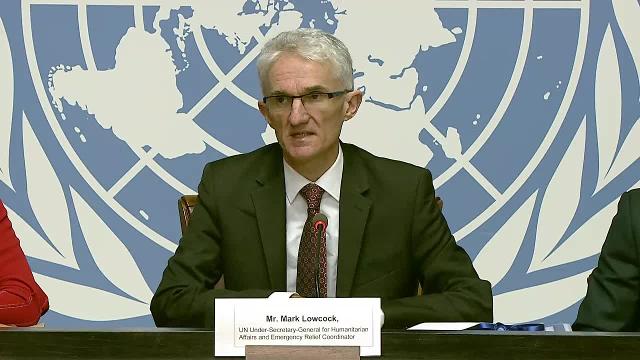
“There is the need for greater protection of children, women and girls from violence. Yes, we need to work on peace building and development but it will be counter-productive if those rescued are exposed to violence again,” Lockwock said.
Ahmed, Nigeria’s Minister for Finance, who co-chaired the National Steering Committee for the Report with Kallon, said the report appreciates the problems and complexities of the North East:
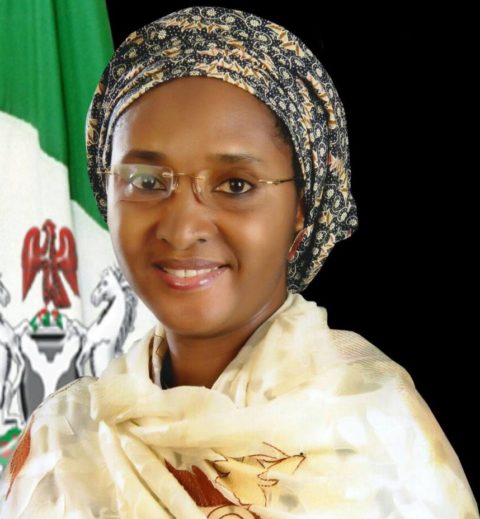
“I am happy to note that the 2018 report is neither frivolous nor simplistic in its assessment. It has, in fact, duly appreciated that the problem associated with the North East is a rather complex and multifaceted one. The Report has carefully chronicled both the possible internal and external enablers that fuel the violence and conflict leading to the monumental humanitarian challenge the region is now grappling with. The terrible evidence and impact of it all, has been the death of tens of thousands and displacement of close to two million Nigerians spread across the six states of the North East. These deaths occurred in the relatively short period between 2009 and 2016,” Ahmed said.
The Minister noted that despite this disturbing reality, she is gladded by the fact that the report has made robust and useful recommendations on how to tackle the North East, especially “on the basis of a fully holistic and well-integrated model that leaves no one behind”.
Ahmed’s colleague in the Nigerian government, Senator Udoma Udo Udoma, who is the Minister of Budget and National Planning, noted that the UNDP had been a great assistance to the Nigerian government over the years.
“The UNDP has been of great help to Nigeria on developmental issues. You have, over the years, sought to identify with our developmental priorities. Your interventions in the implementation of a number of the programmes and policies set out in our Economic Recovery and Growth Plan (ERGP) 2017-2020 is very much appreciated. As you know the ERGP is the comprehensive medium-term plan of this Administration which aims to transform Nigeria by tackling the constraints to growth; leveraging the power of the private sector; allowing markets to function whilst upholding core values and promoting national cohesion and social inclusion.
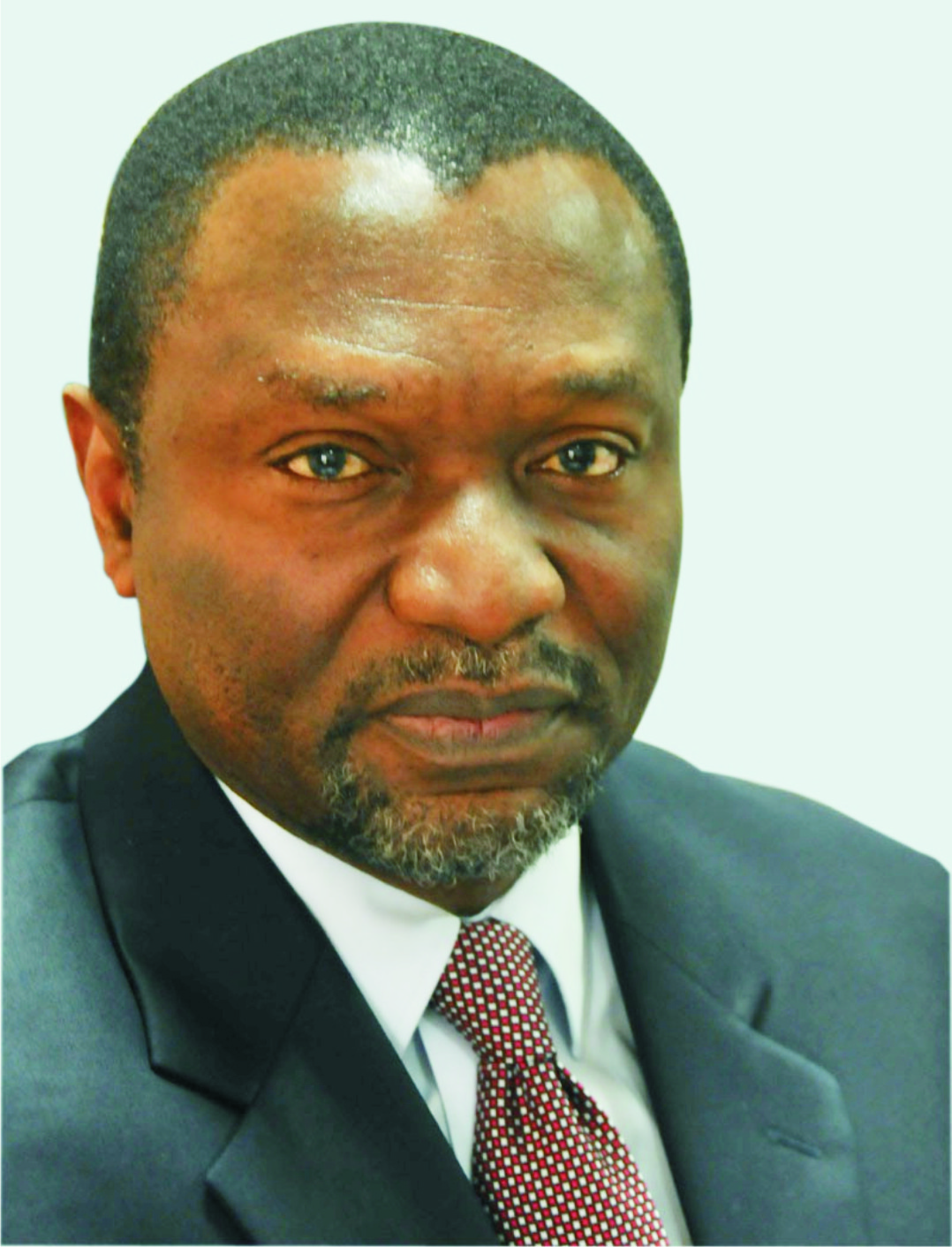
“I must commend the UNDP for regularly putting together the findings on human development indices in Nigeria. I understand that this report was initially conceived as an alternative version of the prevailing development paradigms of that time. The aim was to produce a report that goes beyond the focus on income indices to a tabulation of the totality of human development indices. In that regard it plays an extremely useful role and we, in Nigeria, always look forward to the report as a useful guide. This is why this Ministry has been happy to collaborate with you in the production of the report. It was in that spirit of collaboration that our then Minister of State, Budget & National Planning, Mrs. Zainab Ahmed, contributed a foreword to the Report. She, of course, is now the Minister of Finance,” Senator Udoma said.
The Minister said the 2018 Report focusing on the North East confirms the view that the Boko Haram insurgency is partly as a result of the manipulation by religious extremists of some of the socio-economic, socio-cultural conditions of the North East. He noted that by addressing the economic and developmental issues in the North East, the incidence of terrorism of terrorism would be reduced.
“In more specific terms, the report has confirmed a significant relationship between perceptions of exclusion, inequality, religious bigotry; loss of property; unemployment, resultant loss of livelihoods; as well as perceptions of exclusion that extend to key sectors including health, education, agriculture etc. that have a significant nexus with the conflicts and violence in North Eastern Nigeria. This Report is, therefore, a reminder that we all need to continue to work together, the Federal Government, the State Governments, donor agencies and friends of Nigeria to continue to reduce the causes of the relatively low human development indices in the North East,” the Minister said.
The 2018 UNDP report for Nigeria is a 92-page, four -chapter report on the humanitarian challenge posed by the nine-year old Boko Haram insurgency in the North East of Nigeria which has claimed thousands of lives and has left nearly two million people displaced.
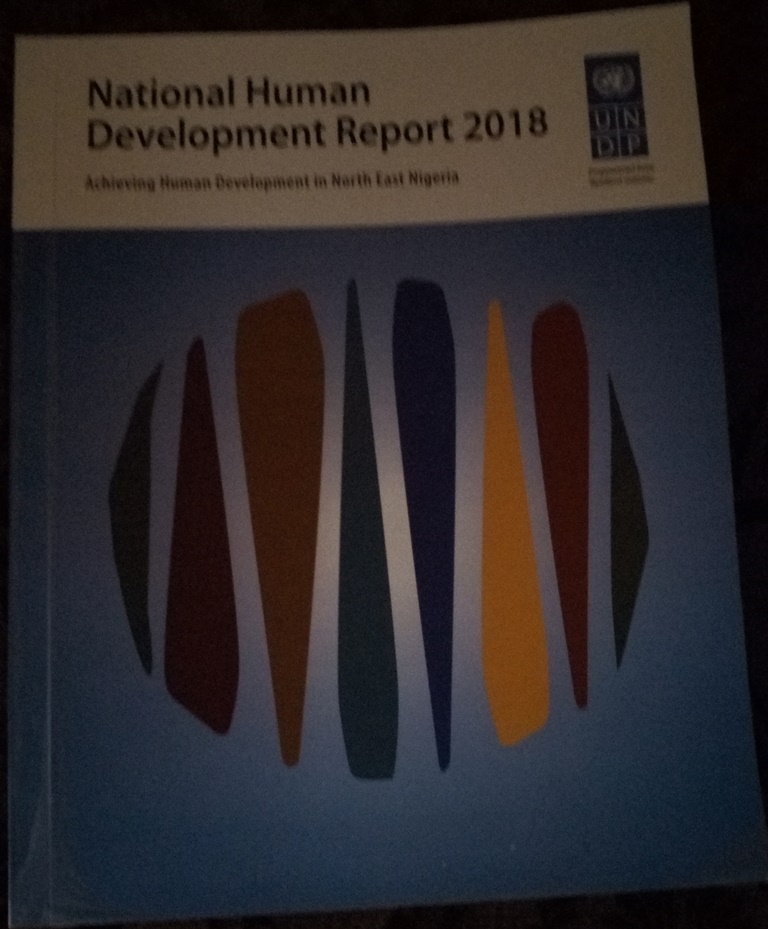
The report identifies:
●The historical, social cultural and economic factors fuelling the conflict and violence in the North East
●Analyses the manifestations of the violence occasioned by the insurgency in the region, particularly with respect to the human, humanitarian and developmental consequences, and
●Proposes a new analytical and conceptual framework for understanding and addressing the crisis and similar types of crises with a view to advancing and expanding the frontiers of knowledge in conflict resolution, rehabilitation, and re-integration.

